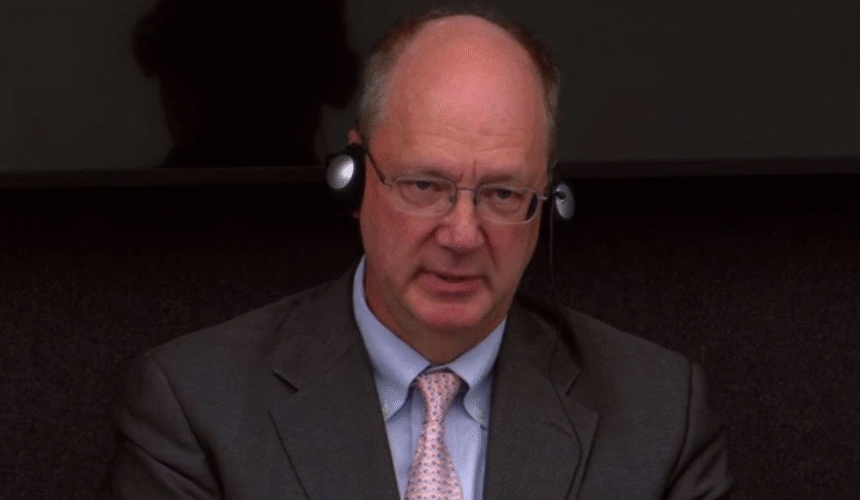Paul Williams, the second witness for Hashim Thaçi’s Defense, presented as a pro bono legal advisor to the Kosovo delegation at the Rambouillet Conference in February–March 1999, completed his testimony yesterday at the Specialist Chambers. He will continue testifying today before the trial panel.
Williams denied claims that German troops had found 15 detainees — including an elderly man found handcuffed to a chair, beaten, and dead — in the former MUP building in Prizren.
He also stated that he did not view Hashim Thaçi as a leader during those negotiations. Williams, who began his testimony on Tuesday at The Hague in the trial of former KLA leaders, said that Thaçi was being controlled from the outside. Hashim Thaçi, Kadri Veseli, Jakup Krasniqi, and Rexhep Selimi stand accused of joint criminal enterprise related to war crimes and crimes against humanity during the conflict.
“It gave the impression that someone else had the negotiations under control, or partly under control, or that if you were in a position neither here nor there — somewhere in between. I did not get the impression that he had full control over the negotiations, but I think he represented interests from outside, and I think those external interests had their influence on his authority or his behavior during the talks,” Williams testified.
Williams, who was also engaged in the Vienna negotiations (2006–2007), said this impression came from watching how Thaçi responded to phone calls and observing his body language.
“The basis for this conclusion comes from several factors. The numerous phone calls Hashim Thaçi received from people outside the castle. His phone rang constantly, which often meant he had to step outside or move to a corner of the room. The Kosovo delegation was on the ground floor, so they could easily go out into the castle courtyard,” Williams explained.
Williams further emphasized that Thaçi reported to KLA zone commanders. Regarding his role at Rambouillet, he said it focused on activities outside the castle where the negotiations were held and on regular meetings with an Albanian-American whom he identified as Dino Hasanaj. Williams noted Hasanaj had close ties with the KLA.
Hasanaj, an Albanian-American, later headed Kosovo’s Privatization Agency for several years. In 2012, he was found dead in his private office with 13 stab wounds. Although one version at the time ruled it a suicide, the circumstances of his death remain shrouded in suspicion 13 years later.
These are some of the key statements Williams made at the Specialist Chambers.







